From Big Brother to a Leader: Modi’s Soft power surge in South Asia

Rishabh Sachdeva, Research Assistant
Bureau of Research on Industry and Economic Fundamentals

Photo credit – Aspenia Online
Introduction
Soft power isn’t a mere concept it is the society-driven activity that drives India’s public diplomacy, especially under PM Modi and EAM Jaishankar. From Mandir diplomacy to Vaccine maitri, diplomatic initiatives and cultural outreach today are a calculative attempt to garner and reshape India’s projection as a formidable force in the South Asian Theater. India’s image revolved around Bollywood, Bomb, Bangalore and Boy Next Door, over the past decade Modi’s governance stands as a compelling case for India’s soft power owing to his dynamic personality and diplomatic outreach, cultural exchange and people-to-people contacts, an emphasis on digital diplomacy. While India has great triumphs globally with something as major as the Hindu temple in UAE, to multiple accolades from the Indian music industry owing to an Oscar to ‘Naatu-Naatu’ and a Grammy for the album ‘This Moment’, it is crucial to understand how India has elevated its soft power in the South Asian region. The article will explore how the BJP and Modi administrations, throughout their two terms, have actively cultivated soft power. It will examine their efforts, the resultant impact, and their endeavor to transition from the perception of a ‘Big brother’ or a bully to that of a ‘Vishwaguru’, or global mentor.
Religion Tourism
The connections between South Asia and Southeast Asia are deeply rooted in shared civilizational ties, characterized by similarities in art, culture, cuisine, and, notably, religion and religious practices. Tourism possesses the ability to draw visitors while also conveying cultural and governance perspectives. Religious places have become some of the most visited and appreciated destinations in the world, not only for adherents but for general tourists as well and India is a hotspot for religions like Hinduism and Buddhism as most adherents of Buddhism are outside India. The Buddhist Circuit, encompassing key sites in Gautama Buddha’s life, and the Ramayana Circuit, tracing the epic journey of Lord Rama, serve as significant tools of India’s cultural diplomacy, especially in South Asia. These circuits showcase India’s rich heritage, and religious diversity, and foster connections with Buddhist-majority nations in Southeast and East Asia, and Hindu communities globally, respectively They contribute to India’s soft power by promoting its spiritual significance and boosting tourism in India.
Border Haats
Another initiative by India is the Border haats which are local markets established along the borders of India with neighbouring countries such as Bangladesh and Myanmar. These haats serve as platforms for cross-border trade and cultural exchange, allowing residents from both sides to buy, sell, and interact with each other. The impact of border haats is significant as they promote economic cooperation, enhance people-to-people contact, and foster mutual understanding between communities living along the border regions. By facilitating trade and commerce at the grassroots level, border haats contribute to poverty alleviation, economic empowerment, and regional integration. Moreover, they serve as symbols of goodwill and cooperation between India and its neighbouring countries, showcasing India’s commitment to peaceful coexistence and collaboration in South Asia.
Vaccine Maitri
India today envisions being the pharmacy to the world, and the true test for this was COVID-19 vaccinations. India’s Vaccine Maitri program is a significant initiative aimed at providing COVID-19 vaccines to countries around the world, including those in South Asia. Launched by the Indian government, the program reflects India’s commitment to global health cooperation and solidarity, particularly in the face of the COVID-19 pandemic. Out of the 150 countries supported by India, 29.44% of total vaccines were given to South Asia some as gifts and some as exports. The Vaccine Maitri program demonstrates India’s commitment to global health and solidarity. By providing COVID-19 vaccines to neighbouring countries, India enhances its soft power in South Asia and beyond. Through vaccine diplomacy, India strengthens bonds of friendship and trust while promoting regional cooperation and stability, reinforcing its position as a key player in addressing public health crises.
Act East Policy and Soft Power
In 2014, PM Modi renewed its emphasis on South Asian relations with an update from the Original ‘Look East policy’ to a new and dynamic ‘Act East Policy’. Now this policy primarily has had hard power dimensions in the context of economic cooperation and business, but this policy has also enabled an expansion of its soft power by using the region’s historical ties and cultural legacy. Act East policy (AEP) has led to India’s support to restore temples in Cambodia and Nepal along with development and cooperation initiatives to build infrastructure through projects like the India-Myanmar-Thailand Trilateral Highway and the Kaladan Multi-Modal Transit Transport Project. India’s large diaspora in South Asia also serves as a bridge to foster cultural ties.
India as Vishwaguru
India’s ambitions to become a beacon of wisdom and ‘Vishwa guru’ world teacher elaborating upon. India’s aspiration to embody the world’s teacher reflects a profound acknowledgement of South Asia’s colonial history and deep civilizational ties. Through the title of Vishwaguru, India seeks to revive the collective wisdom of the region in a global political discourse largely dominated by Western ideologies. This vision not only offers an alternative perspective but also highlights the rich intellectual heritage that has often been overlooked. By asserting its strategic vision, India not only reinforces its influence within the South Asian region but also asserts its rightful place on the global stage, advocating for a more inclusive and diverse representation of ideas and values. The impact of this narrative resonates through cultural diplomacy, forging lasting connections that extend beyond geopolitical considerations. As India asserts itself as a beacon of knowledge and virtue, it strengthens its influence, creating a narrative that emphasizes cooperation, inclusivity, and shared heritage in the diverse tapestry of South Asia.
Big Brother – Being Bully or Being Generous
India’s image as a “big brother” in the South Asian region has been a subject of both admiration and criticism. While some view it as a symbol of protection, guidance, and leadership, others perceive it as an assertion of dominance and hegemony. The notion of India as a big brother reflects its geopolitical significance and historical ties with neighboring countries, as well as its responsibility to promote stability and development in the region. However, this image can also evoke concerns about India’s intentions and the potential for unequal power dynamics. Conversely, India’s idealism and generosity are embodied in its efforts to promote cooperation, mutual respect, and shared prosperity among South Asian nations. Through initiatives such as the Vaccine Maitri program and infrastructure development projects, India demonstrates a commitment to regional integration and collective well-being. Striking a balance between its role as a big brother and its ideals of generosity and inclusivity is essential for India to effectively navigate its relationships in the region and uphold its principles of diplomacy and soft power.
Conclusion
India’s transition from a perceived “big brother” to an embodiment of idealism and generosity in South Asia marks a significant shift in its soft power dynamics under Prime Minister Modi’s leadership. Through strategic initiatives like the Vaccine Maitri program, border haats, and the Act East Policy, India has effectively projected itself as a global mentor, or Vishwaguru. These efforts not only strengthen regional cooperation and connectivity but also redefine India’s role as a responsible and benevolent actor on the world stage. By leveraging its cultural heritage and historical ties, India is reshaping narratives of cooperation and inclusivity in the South Asian region, solidifying its position as a leading force in shaping the region’s future. As India continues to navigate its relationships, striking a balance between its guiding role and its ideals of idealism and generosity remains crucial for maintaining its soft power influence and fostering enduring partnerships in the region.
Public Transportation and Gender: Bridging the Mobility Gap for Women in India
Viksit Bharat: India’s Aspirations and Challenges
Arctic–MENA–Asia Trade Triangle: New Corridors, New Competitions
Navigating the Green Wave: How India Can Lead the Sustainable Shipping Revolution?
India’s Growing Economic Clout in the Shadow of the US-China Trade War
South Asia’s Twin Deficits of Trade and Trust
As Pakistan and Bangladesh get close, India should be watchful
Skills, Youth and Employability: India’s Quest for Economic Empowerment
